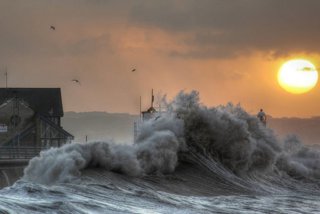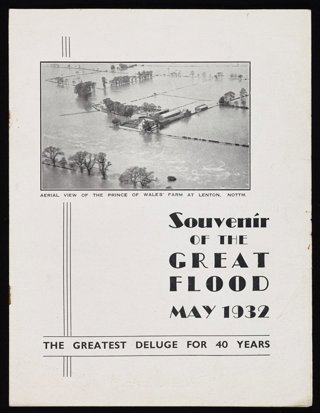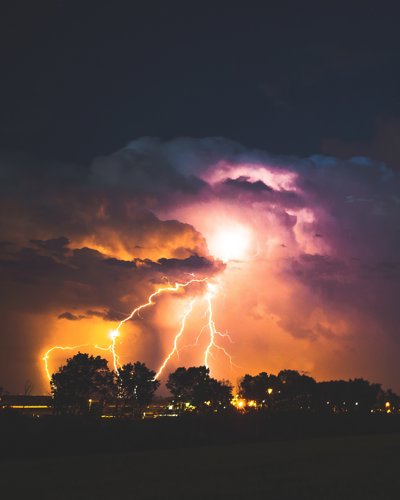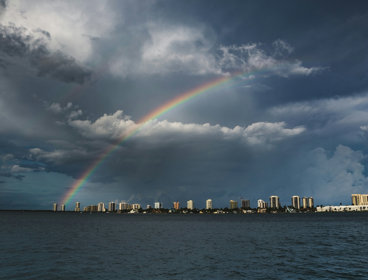Georgina Endfield is Professor of Environmental History at the University of Liverpool. Her research explores the social and cultural history of weather and climate, and uses historical records and oral history approaches to explore how people have understood and been affected by climate variability and extreme events through time, and how these experiences have shaped communities.
In this podcast we spoke to Professor Endfield about TEMPEST: a database of extreme weather events in the UK. It is compiled from archival, library and oral history research.

Porthcawl at High Tide, Gareth Thomas, Flickr: http://bit.ly/2nXmxRs

Historical experiences of weather © TEMPEST
Key words
Weather
The short-term changes we experience in temperature, clouds, humidity, precipitation or wind. This can vary on a daily basis, or even on the same day.
Climate
Climate is the average, long-term weather patterns. It is measured, for example, in terms of maximum and minimum temperatures and average rainfall and precipitation.
Extreme Weather
When weather is significantly different from the average or usual weather pattern, for example, a flash flood or heat wave, it is considered extreme weather. This may take place over one day, or over a period of time.
Lesson plans
What is the weather and climate history of your local area? Consider the different types of data that can be used to understand about the climate variability of your region. Can you understand the impact of weather events from alternative sources beyond traditional news outlets?
Identify one particular weather event that has happened in your local area over the past fifty years. Using social media, newspapers, photographs, and interviews can you document how this weather event was experienced – what were people’s reactions to this event?
Using data from this event compile your researched information and produce either: a newspaper article, or (technology dependent) video/radio news report on your findings.
Resources
Weather and Climate A Level Overview
Weather and Climate Resources (search for weather or climate within our resources database)
Links
Weather Extremes Blog, University of Nottingham
Weather exhibition shows when the river Trent froze over, BBC (2016):
Historical record shows these floods are no high-water mark, The Conversation (2014)


